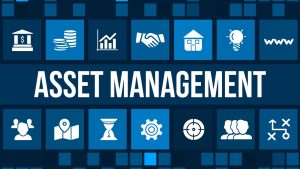While a company may use a single ERP program, a comprehensive ERP application suite connects all aspects of the company, allowing for better communication and data collection. Customers, suppliers, carriers, financial institutions, and others are all successfully connected with today’s ERP systems, which provide collaboration and digital solutions to efficiently interact with partners outside the business.
What is an ERP System?
What are ERP's Advantages?
Increased Productivity
Collaboration has Improved
Data in Real-time and Improved Reporting
Compliance is Built-in
Accessibility to the Cloud
Customer Service Improvements
Flexibility
What Industries Have the Most ERP Benefits?
- Automotive
- Products for the general public
- Food and Drink
- Technology
- Manufacturing in Industry
- Sciences of Life
Would ERP Implementation (or Upgrade) Benefit My Company?
- Do you need more precise business data? The kind and quantity of data that an ERP system lets you gather, report on, and utilise in decision-making is a huge advantage.
- Is your business expanding, or do you want it to? It’s conceivable that your present technology can’t keep up with you or develop with you. You’ll be able to go where you want to go with the correct ERP configuration.
- Are your consumers happy with your service? If not, a contemporary ERP system may assist you in removing the pain points that cause your consumers to be dissatisfied.
- Are all of your company’s systems linked? Having a single company-wide solution may help your employees communicate and collaborate more effectively.
- Are you trying to find methods to save money? The advantages realised by using an ERP system help you to save costs in a number of ways, from better inventory planning and forecasting to shop floor efficiency and lower buying and freight costs.
ERP's 5 Most Valuable Advantages
Effortless Integration of Business Processes
Cost-cutting
Improving Customer Service
Optimised Operations
Data Integrity and Security
Advantages Of ERP For A Startup
Should a new firm, a fresh startup, or a small business use an ERP? This is one of the most important questions to ask.
It’s evident that all firms need ERP to achieve optimal outcomes. ERP, on the other hand, maybe a game-changer for startups because startups are cash-strapped and limited in resources, an ERP system may help them save money by maximising the use of their current resources.
Cloud-based ERP is suggested for startups since it may help them save a lot of money on IT. A Cloud-based ERP may be installed remotely, and it does not need costly hardware or networking infrastructure to function. Furthermore, Cloud-based ERP may be accessed through a web browser, and the consolidated data is accessible 24 hours a day, 365 days a year, from any location. To use the ERP, all you need is an internet connection and a device such as a laptop or a smartphone. When it comes to startups and small organisations, ERP systems also provide team communication and smooth data interchange.
How Do You Choose The Right ERP For Your Company?
Choosing and implementing an ERP system for your company is a monumental effort that needs careful consideration of all advantages and downsides, as well as a cost-benefit analysis. The small firm must budget for ERP costs and assess the time and money saved if the ERP is implemented.
Aside from that, the business’s present demands and requirements should be taken into account. If the new company just has 3-4 employees and no need for inventory management, supply chain management, or HR, a low-cost ERP with restricted capabilities might be used.






